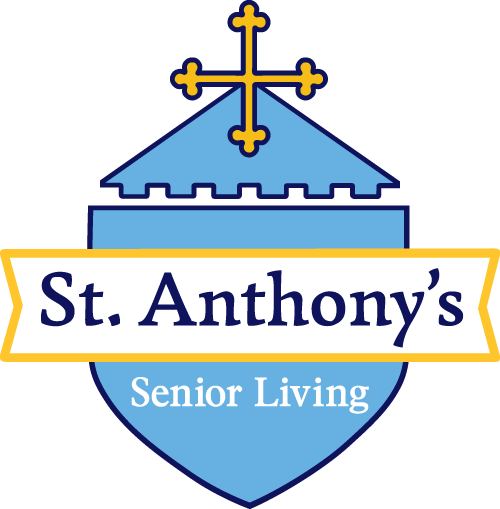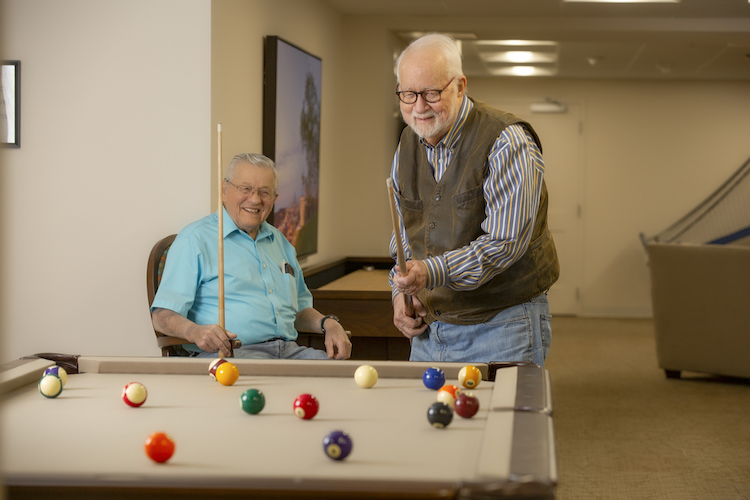As you or your loved one prepare to enter the next phase of life, you have several living options to consider. Many older adults are hesitant about moving out of the family home and downsizing or going where they can get better support and care. It can be helpful to understand all of your senior living options, and those options include home care.
What is Home Care?
Home care is a senior living alternative in which an older adult who requires special assistance with activities of daily living (ADLs) can age at home with the support of a professional caregiver. It enables seniors to stay in their own home longer and have a sense of independence while receiving the day-to-day care they need. Home care can be utilized as a long-term care solution for those with chronic health issues or disability needs, or it can be a short-term support system for those during a period of recovery.
Types of Home Care
Because everyone is different and individual needs vary, there are a few different types of home care that require specially trained caregivers to perform:
Personal (Non-Medical) Care
Caregivers who provide personal care offer companionship and assistance with ADLs such as bathing, dressing, and cooking meals. They may also run errands, schedule appointments, and ensure their client takes necessary medication on schedule. Other activities might include light housework. These caregivers are not qualified to provide medical care, but are typically professionally trained for self-care and hygiene support and can be hired as 24/7, live-in care.
Home-Based Skilled Nursing
Those in need of regular medical care can hire a skilled nurse to provide at-home medical care related to chronic illness or disabilities. This may involve maintaining home-based medical equipment such as a ventilator or feeding tube, administering medications, or monitoring overall health. They typically do not provide self-care services or ADL assistance.
Visiting Nurse Services
In the event of short-term care for medical recovery, usually after a hospital stay, a professional nurse may provide home-based care with the expectation that the patient will be able to return to fully independent living after a period of time. These nurses typically focus on physical or occupational therapy and may also provide home health aide services. It requires a doctor’s prescription, and visits are usually only around an hour in length.
Benefits of Home Care
The primary reason seniors opt for home care is as a means of staying in their family home when living independently is no longer a safe option. Hiring a caregiver or skilled nurse means you can receive the support you need without leaving the comfort of your own home. Home care also means exclusive, one-on-one service. For the length of time your caregiver or nurse is with you, they are 100% dedicated to your needs.
Drawbacks of Home Care
As nice as it may sound to stay in your home longer, home care is not without its drawbacks. It can be difficult (and expensive) to create a home care plan that properly meets every single specific need you or your family member has.
Coordinating Care
Senior care needs don’t always fit perfectly in a single caregiving wheelhouse. If you require home care that addresses both personal and medical needs — which is often the case — then you’ll need to hire both a caregiver and a nurse. This may involve a lot of schedule coordination that requires detailed management, whether it be a family member or the individual receiving care. Such coordination, especially if it’s done by someone who doesn’t live in the household, can leave a lot of room for error and can put the whole care plan at risk.
Home May Not Be Built for Needs
Many structural elements within a house may cause discomfort to seniors, increasing the chance of potential accidents in the home. It may have tall staircases, narrow doorways, and other features that become problematic when physical capabilities change. In order to age comfortably at home, your house may require significant remodeling to add safety rails in bathrooms, a walk-in tub, or wheelchair access. Even with renovations, you may find yourself confined to a single floor and unable to get upstairs with or without help.
24/7 Care is Highly Expensive
All of the renovations, caregivers, and medical equipment required to make living at home with constant support and care can add up! When taking into account the financial side of your senior living options, home care can easily become the most expensive if you need multiple sources of care.
Lack of Community
Although some caregiver services may offer transportation to and from essential appointments, they may not be able to safely transport you or your loved one to events or activities outside of the home on a regular basis. This means seniors receiving home care services may only interact with their caregiver for long periods of time. While this one-on-one companionship is helpful, it’s not the same as being surrounded by a community of friends and having access to regular outings.
Additional Limitations
Home care professionals can provide help with daily living and medical needs, but they won’t be dedicated to helping you live a full life. At a senior living community, a full calendar of fun life enrichment activities is available, even including fitness activities to stay active! An at-home caregiver also may not be able to transport you or your loved one to events or to spend time outside of the home. Everyday errands, like getting groceries, can still be a challenge.
Why Senior Living May Be a Better Choice
Although growing old in your own home may be the familiar choice, it may not be the best choice. Senior living at St. Anthony’s provides all-inclusive care and luxurious housing to residents in a close-knit community packed with amenities and activities to make these next years the best years. With professionals on our highly trained staff offering services in every field, from dining to ADL support and nursing, you can have all your care needs met without trying to hire a single caregiver who can do it all. At St. Anthony’s, we offer both independent and assisted living options depending on your unique support needs. All of our residents have on-site access to medical care, downsized living designed specifically for their needs, comfort, and enjoyment, and a calendar full of fun activities to build real, lasting friendships with their peers.
If you’re considering whether St. Anthony’s is right for you, reach out to speak with us today! We’re here to help answer any questions you may have and make your transition to senior living a wonderful experience.




